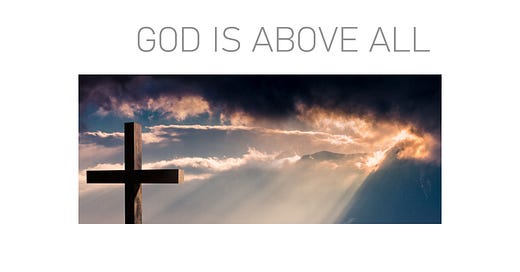Psalm 47:2-3, 8-9, 10
At the beginning of the Psalter, in Psalm 2, we heard about the kings of the earth and the nations entertaining a rebellion against God and His messiah (see Ps 2:1-3). This rebellion is evident in our contemporary culture with militant atheism proclaiming that God does not exist and that sets up its moral standards. This rebellion is also evident in the growing number of Christians being persecuted in our world. And yet centuries ago the psalmist envisioned a time when the princes of the people will gather with Israel and acknowledge the universal sovereignty of God of Abraham. The last verse of psalm 47 declares that “the princes of the peoples are gathered together with the people of the God of Abraham” (Ps 47:10). Is it a wish or a prophecy?
There is a branch of Christian theology that is concerned with death, judgment and the final destiny of each person and the entire humankind. It is known as eschatology. I hope that it does not come as a surprise to many but we live in the “end-time” that is defined by the Church as the time of salvation that has begun with the Pentecost. The fulfilment of this “end-time” will take place when Christ returns in glory (see CCC, 2771). Within the period of time between the Pentecost and Christ’s return, the Church proclaims the Gospel of salvation and over the centuries this proclamation has drawn a multitude of people to faith in the living God. But, this proclamation has often taken place amid persecution with many “princes of the peoples” opposing the Gospel and destroying the Church. And so, are we going to witness the times when all nations will enter the Church and accept God’s lordship?
The risen Christ declared to His disciples that “all authority in heaven and on earth has been given to” him (Matt 28:18) and Saint Paul writes that “God has highly exalted [Jesus Christ] and bestowed on him the name that is above every name, so that at the name of Jesus every knee should bow, in heaven and on earth and under the earth, and every tongue confess that Jesus Christ is Lord, to the glory of God the Father” (Phil 2:10-11). The parable of the Last Judgment speaks about the glorious coming of the Son of Man to judge the nations (see Matt 25:31-46) and our Catechism teaches that “in the presence of Christ, who is Truth itself, the truth of each man's relationship with God will be laid bare” (CCC, 1039). But when this happens is unknown to us. “We know neither the moment of the consummation of the earth and of man, nor the way in which the universe will be transformed” (CCC, 1048).
The Bible and the teaching of the Church make it clear that everyone will have to stand before “the judgment seat of Christ, so that each of us may receive what is due us for the things done while in the body, whether good or bad” (2 Cor 5:10). This includes also the mighty of this world, described by the psalmist as “the guardians of the earth”. Although they have enormous power over their people, they are going to be judged as well. And I fear that the judgement many of them shall receive will be comparable to the one received by the last king of the Babylonian empire, Belshazzar: “MENE, MENE, TEKEL, and PARSIN” (see Daniel 5:25-30). The psalmist reminds the mighty of this world that, whether they like it or not, they belong to God who is above all (Ps 47:10).




